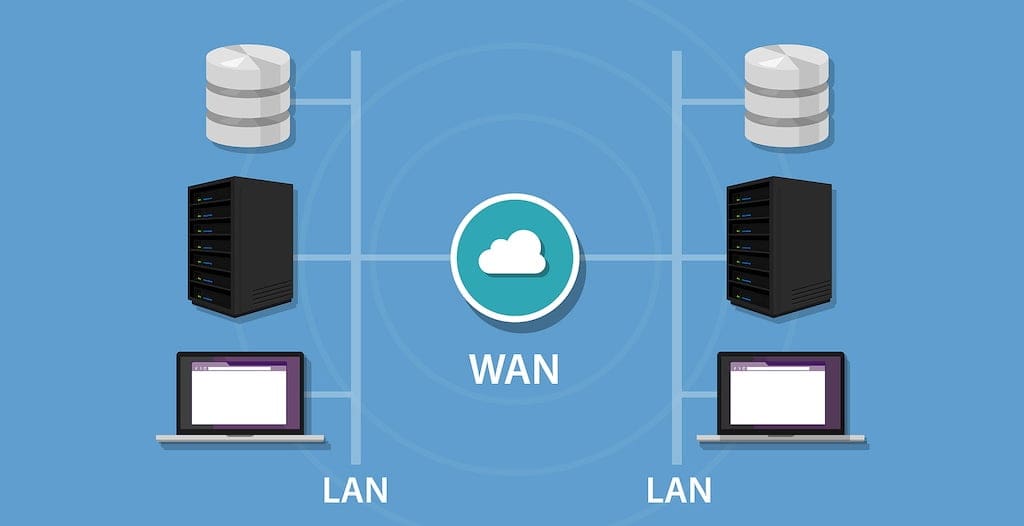Table of Contents
ToggleExploring the Essentials of Managed Network Services
Understanding Managed Services
The term managed services describes outsourcing operational tasks, also called commodity services, to third parties (solution providers) on a subscription basis.
They represent a strategic way for businesses to delegate their IT operations to a third-party provider, often improving efficiency while lowering costs.
There are a wide range of managed services provider types, ranging from cloud services and application service providers to network managed services providers, as described in this article.
Managed Network Services
Organizations have turned to Managed Network Services (MNS) to streamline their operations and enhance productivity in a business environment that relies heavily on network availability, performance, and security.
Like other managed services, managed network services involve outsourcing network services and maintenance tasks to specialized managed network service providers.
These services encompass a broad spectrum of activities, from basic network access and transport services to more complex functions like network monitoring, configuration, and security.
The concept of managed network services is familiar to IT. As businesses rely more and more on digital solutions and cloud computing, network stability and efforts to secure the environment need to grow along with network complexity.
Software-defined networking (SD-WAN), virtual network services, and network management systems make it easier for providers to offer more advanced and tailored solutions to businesses, enabling them to obtain effective network operations at a fixed cost easily absorbed in the operating expense budget.
The constant growth, security challenges, software, and constantly evolving skills needed for effectiveness make it less attractive for internal IT to provide this form of support for a common commodity.
The Evolution of Network Services
Network services have undergone significant transformation over the last few years. Initially, networks were relatively small and easy to support, enabling businesses to manage their network infrastructure in-house.
This required hardware, software, and human resources investments, but at a level IT organizations could manage.
However, with the growth of the Internet and the ability to offer cloud services, complexity grew, and the need for specialized expertise and tools became apparent.
The role of the managed network services provider emerged to address this need. Initially, these services were limited to basic network access and transport services, such as leased WAN lines.
However, as network complexity grew with new technologies, so did the scope of services they offer. These include network monitoring, security operations, data center, and remote application hosting services.
Reasons IT Engages Managed Network Service Providers
Several factors have driven the shift towards managed network services:
Operational efficiency and cost savings.
Reduction of training costs and the cost of hiring specialized staff
Ability to focus resources on core business activities
Additionally, the rise in security threats and the level of specialized skills and network management systems needed to protect the network from cyberattacks have made it essential for businesses to have advanced network vulnerability management and monitoring strategies, often better managed by specialists.
As business operations continue to grow digitally, the role of managed network service providers is expected to become even more integral to business operations, driven by the continuous need for innovation, security, and efficiency in the networking domain.
Benefits of Managed Network Services

Managed network services offer many benefits to businesses, making them an essential component of modern corporate strategy. The most notable advantages include:
Operational Efficiency: Outsourcing network administration tasks to managed network service providers can significantly reduce the time and resources spent on maintaining and updating network infrastructure in-house.
Cost Savings: Moving to a managed services option enables IT to trade the need for large capital expenditures on network equipment for the predictability of operational costs for an agreed monthly fee.
Improved Security: Managed service providers have advanced tools and specialized expertise to monitor and protect the network against security threats. This ensures the business’s data and network are more secure than many in-house networks.
Scalability and Flexibility: Managed network services offer the flexibility to scale up or down based on business needs. This adaptability is particularly beneficial for businesses that experience fluctuating demands or rapid growth.
Access to Specialized Expertise: Managed services providers have teams of experts who are continuously updated with the latest technologies and industry best practices. This access to specialized expertise ensures businesses benefit from the most advanced and efficient network solutions.
Service Level Agreements (SLAs): Managed network services come with SLAs, which guarantee certain levels of service, uptime, and performance. Knowing that their network infrastructure is reliable and consistently monitored gives businesses peace of mind and improves customer experience.
Key Services Offered by Managed Network Services Providers
A managed network services provider can offer a range of services tailored to meet the diverse needs of businesses.
These services typically include:
Network Monitoring and Management: The continuous oversight of a company’s network endpoints to ensure optimal performance and quick resolution of any issues, helping to maintain high network availability and performance.
Security Management: Providers offer comprehensive security services, including firewalls, intrusion detection systems, and regular security audits, to protect the network from external and internal threats.
SD-WAN and Virtual Network Services: These modern cloud-based network solutions offer increased flexibility, efficiency, and control over network traffic, providing businesses with a more agile and robust network but requiring expertise and experience to operate.
Managed Connectivity Services: This includes providing network access, wireless access, and transport services, ensuring stable and reliable connections for the business’s operations.

Other Related Services:
Data Centers and Remote Application Hosting Services: Managed service providers often offer hosting services for applications and data, which can include cloud-based solutions and physical data center services.
Managed Local Telephone Services: Managed telephony services are another commodity offering that can be integrated with other network services for a cohesive communication solution.
Choosing the Right Managed Network Services Provider
The ability to select a great partner to provide managed services is crucial for the success of a business’ network management strategy.
Clients should evaluate a provider’s capabilities in the following areas, matching them to business needs and strategic direction:

Future Trends in Managed Network Services

Technological innovations and changing business requirements continually reshape the business model for managed network services.
Understanding the technologies and how they help MSP performance is essential in selecting the best provider.
Enhanced Focus on Customer Experience
Service providers are increasingly prioritizing the end-user experience of their customers by providing uninterrupted network availability and optimizing network performance to meet the specific needs of different user groups, thereby enhancing overall customer satisfaction and engagement.
Integration of AI and Machine Learning to Support Network Services
Artificial intelligence and machine learning are revolutionizing how networks are managed, adding important features to network management systems used by many managed network service providers.
These technologies enable predictive analytics, automated troubleshooting, and optimized network performance, leading to the automation of routine network administration tasks and enabling MSPs to operate at scale and more cost-effectively than many internal IT organizations.
Cybersecurity and Vulnerability Management
Companies have intensified their focus on advanced security requirements and MSPs support these growing needs.
This includes implementing next-generation network infrastructure, enhanced intrusion detection systems, and continuous security monitoring, ensuring robust protection against digital threats.
They can and do focus more heavily on security vulnerability and network configuration management as this is central to their business model.
Improvements in Networking Technologies
Changes to network technologies and protocols also change how companies manage the services provided by MSPs. New networking technologies and their impact include:
Cloud-based Networking:
Cloud applications and reliance on cloud application providers lean heavily on cloud-based networking for its scalability, flexibility, and cost-effectiveness.
Increased Adoption of SD-WAN:
SD-WAN is gaining popularity for its flexibility, cost-effectiveness, and enhanced performance. SD-WAN and virtual network services enable providers to optimize network performance without additional network infrastructure, making them critical for businesses that experience peak utilization periods.
Edge Computing
As data generation and processing continue to grow at the edge of networks, managed services are adapting to support edge computing.
This involves managing network resources closer to where data is generated, enabling quicker data processing and response times, which is crucial for applications like IoT and real-time analytics.
The Business Value of Leveraging Managed Services
Managed network service providers usually have access to the latest technology and tools for managing networks.
They offer proactive maintenance and continuous network monitoring, leading to fewer issues and downtime, as potential problems are often identified and resolved before they impact the business.
Why Companies Should Consider Managed Service Providers
As a result of their specialized knowledge and training, they can implement cutting-edge solutions that an internal team might need more resources or knowledge to deploy.
By outsourcing network management, companies can focus on their core competencies and business goals rather than being sidetracked by daily operational IT needs.
Service level agreements that form the basis of the service management relationship enable technical organizations to guarantee a standard level of network performance for a guaranteed price, unlike delivering network services internally, where capital expenses and repair costs fall to the organization and are not always predictable.





